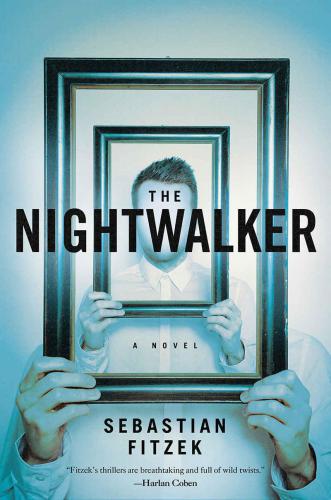
The Nightwalker
کتاب های مرتبط
- اطلاعات
- نقد و بررسی
- دیدگاه کاربران
نقد و بررسی

November 21, 2016
German author Fitzek makes his U.S. debut with a lurid thriller. After Leon Nader lost his parents in an accident at age 10, he suffered bouts of sleepwalking, requiring treatment with sleep specialist Dr. Samuel Volwarth. As an adult, Leon again turns to Dr. Volwarth after his wife, Natalie, flees his house in an unnamed city in terror, with a bloodied mouth and a black eye Leon fears he inflicted while sleepwalking. Provided with a camera to track his night movements, Leon begins to suspect his waking hours disguise a sinister second life—buried in the vaults and crawlways of his apartment complex, built by the mysterious Albert von Boyten—or maybe just the inner channels of his tormented mind. As Leon’s nightly searches intensify, Fitzek vigorously whips the plot into a frenzy of hypnagogic secrets, sex, and sadism. The protagonist’s paper-thin characterization undermines the emotional stakes of Leon’s desperation, and after a stretch of serviceable suspense, the book’s final twist strains plausibility, landing with an expository thud.

December 15, 2016
This translation of a bestselling German novel is a 352-page nightmare in which dreams and reality are indiscernible to the end. Chapter 41 of Fitzek's thriller is an exact duplicate of the book's prologue, giving the book a feeling of reality--we're told something is going to happen, and then, when the time comes, it happens. That would normally give the reader a feeling of closure, but in this case it's unsettling, as all along we have been masterfully led to believe that the horror, the psychological damage that's been done to Leon Nader and his wife, Natalie, have been night terrors, sleep paralysis, sleepwalking nightmares on a never-ending loop. So maybe not. As a child Leon lost his birth parents in an automobile accident. He was kicked out of a foster home when he was found standing over another child's bed with a knife in his hand--while sleepwalking. Eventually, psychiatric counseling put Leon's nightmares to bed. As an adult, an architect, and husband, Leon begins experiencing night terrors again and one day wakes to see his wife packing her bags, bloody and limping away. The ensuing action is a nonstop psychological chase scene in which Leon straps a motion-activated camera to his head in hopes of figuring out what happens when he sleeps and of finding his wife safe and sound. Fitzek creates a nightmarish page-turner. The apartment building where Leon and his wife live is a labyrinth of gothic fun-house doors and mirrors where Leon can enter other apartments and realities by following the maze. And then the author missteps: Chapter 42, the one right after the duplicated chapter, which takes place "some months later," is supposed to tie the dream world, or the "third stage" between sleep and waking sensibility, back to reality. The premise of this resolution is so out of character with the entire novel to this point, so other than the raw progression of the dreams, that it seriously damages the continuity of the novel. Leon's final words only leave us unnervingly in doubt of the outcome. Skip Chapter 42 and this is a powerhouse of a labyrinthine read. You may be fearful of sleeping again.
COPYRIGHT(2016) Kirkus Reviews, ALL RIGHTS RESERVED.

























دیدگاه کاربران